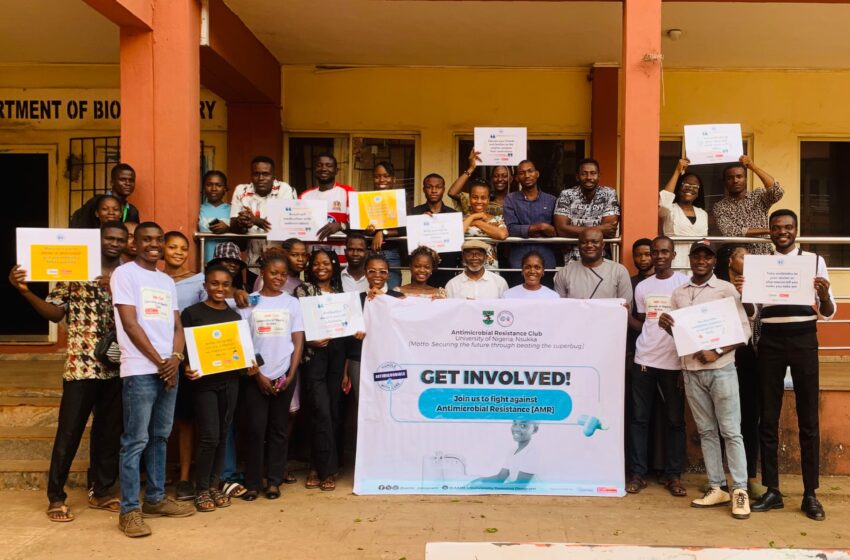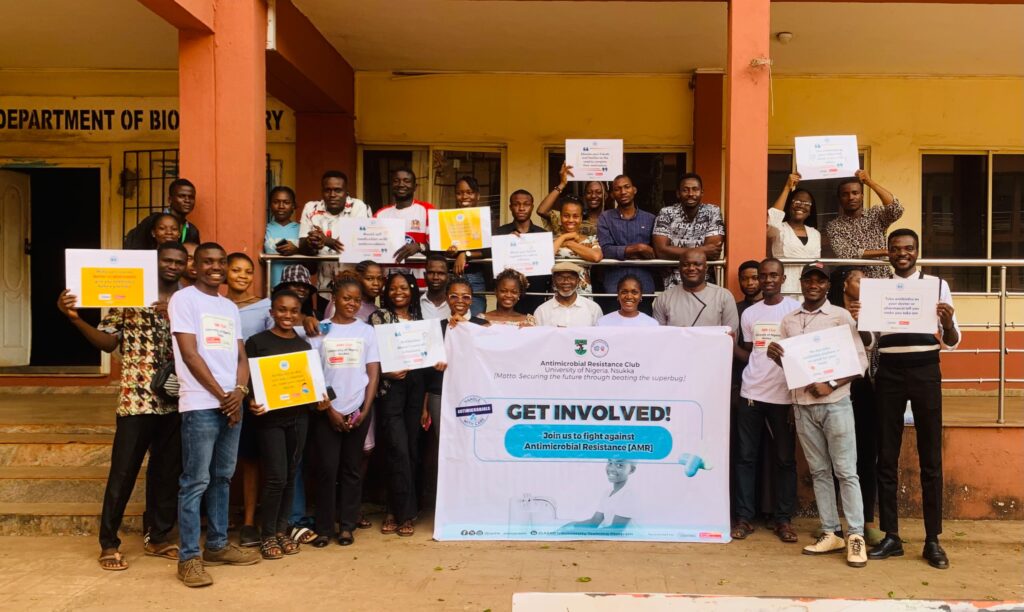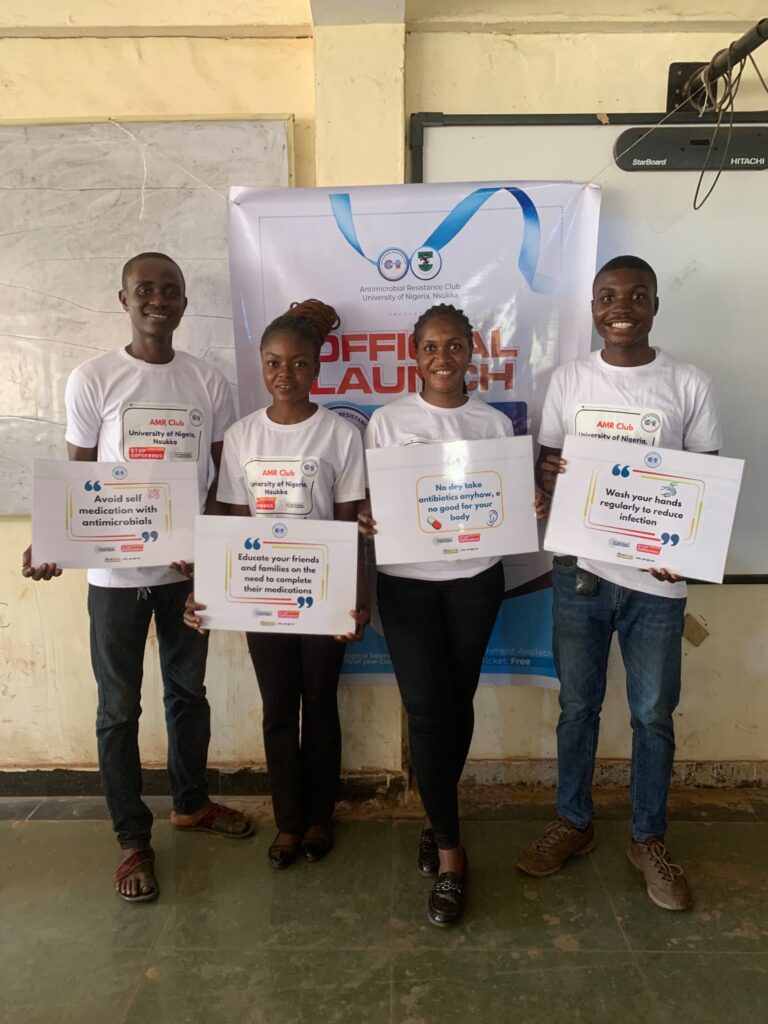Experts: Drugs may stop curing diseases if…

Experts speak at the launch of the Anti-Microbial Resistance (AMR) Club, University of Nigeria, Nsukka (AMR-UNN).
Health experts have alerted Nigerians about various actions that weaken drugs, making them unable to treat harmful bacteria and other microbes in the body, such as malaria.
The warning was issued at the launch of the Anti-Microbial Resistance (AMR) Club, University of Nigeria, Nsukka (AMR-UNN), on Wednesday.
Prof Chukwudi Nnamchi, a lecturer in the department of microbiology, UNN in his speech revealed that the problem of Anti-Microbial Resistance is a serious one, and everyone must collaborate to win the fight against it.
He defined Anti-Microbial Resistance as when bacteria, viruses, fungi, and parasites that cause diseases like malaria and diarrhea no longer respond to antimicrobial medicines such as Amoxicillin, making treatments ineffective.
The Health lecturer cautioned that: “Drugs that previously treated infections can no longer do so. The microbes find a way to maneuver around them. In the future, it may not be possible to treat wounds in cases of surgery.”
Prof. Chukwudi explained that taking drugs without a prescription and not completing the full dosage are major contributors to antimicrobial resistance because the germs causing the illness may survive instead of being eliminated and learn to resist the medicine.
He also warned that abusing antibiotics is dangerous because it kills both the microbes that protect and enable the effective functioning of the body and those causing illness, thereby causing greater harm.
“When you abuse antibiotics, you kill both friends and enemies.” He said.
Dr. Njoga Emmanuel, the staff adviser of AMR Club UNN explained other actions that strengthen Anti-Microbial Resistance, such as not discarding drugs properly and the lack of new research in the pharmaceutical industry to tackle bacteria.
Dr. Emmanuel who is also a veterinary doctor, and a health researcher lamented that the pharmaceutical industry is not interested in conducting research to tackle harmful microbes because of low revenue, preferring to channel resources toward illnesses like cancer.
He, however, warned Nigerians to collaborate in the fight against antimicrobial resistance to save lives.
“You are saving lives; you are saving yourselves. By 2050, AMR will be a major public health problem. As of 2019, millions of people have already died due to AMR.”
“4.9 to 5 million people die every year worldwide as a result of AMR.”
He called on all departments and faculties in the university community to join the fight by becoming members of the club created for this purpose.
The inaugural President of the AMR Club, UNN, Miss Ken-Nwankwo Ngozi Joy, strengthened that the club was established to create awareness and educate people about the dangers of antimicrobial resistance.
“Students and staff should support this club because AMR—antimicrobial resistance—is a global problem. It is a pandemic, an insidious one that, if not tackled, will pose a serious health challenge to everyone. It is a public health challenge, a public health issue, and that’s why the Antimicrobial Resistance Club is an interdisciplinary club.
It’s not just for the health faculties. The leadership of the club consists of people from Arts, Archaeology, Agriculture, Pharmacy, Veterinary Medicine, and Microbiology, making it an interdisciplinary initiative.” She explained.
Below are photos from the event:



By Joshua Eesuola, Chidinma Omeke

